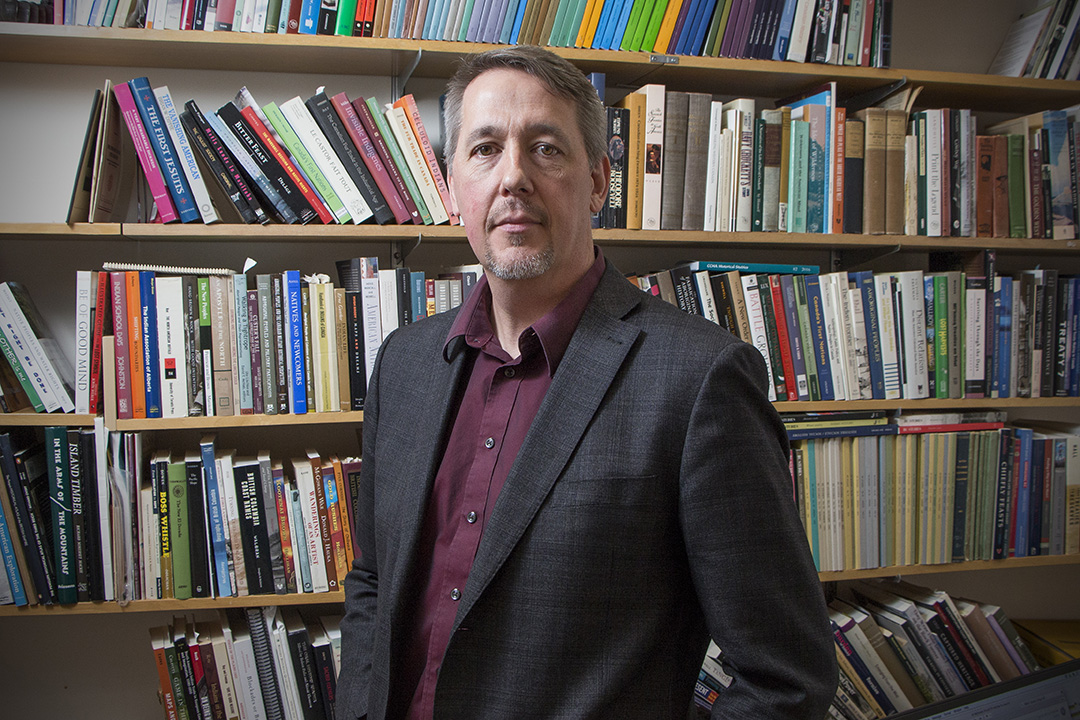
U of S Gladue Rights Research Database first of its kind in Canada
A unique-in-Canada research database developed and launched at the University of Saskatchewan (U of S) will help to ensure the Gladue rights of Indigenous people are fully accounted for during sentencing.
“It is important when sentencing a convicted Indigenous offender that judges be provided with information and facts pertaining to the historical circumstances facing Indigenous people in Saskatchewan,” said Keith Carlson, a professor in the College of Arts and Science’s Department of History and Research Chair in Aboriginal and Community-Engaged History.
“Additionally, people need to be provided with appropriate intellectual frameworks and scholarly apparatus so that they can distinguish and understand the colonial experience of Canada’s Indigenous people from other forms of colonialism that have existed elsewhere,” he said.
Gladue reports are pre-sentencing or bail hearing reports stemming from a landmark 1999 Supreme Court of Canada decision, based on a section of the Criminal Code, advising lower courts to consider Indigenous offenders’ backgrounds during sentencing.
The reports can contain recommendations to a court on an appropriate sentence and provide details about the impacts of settler colonialism on an Indigenous person’s background, such as residential school history, physical or sexual abuse, interactions with the child welfare system, addictions and other health issues.
The new Gladue Rights Research Database provides lawyers, researchers and others with instant access to the insights and conclusions of more than 500 academic works related to the history of settler colonialism in Saskatchewan. It also includes a large and growing body of oral history resources and key archival documents.
The database, which was officially launched in early May and was supported by the Law Foundation of Saskatchewan, is the product of a partnership between Legal Aid Saskatchewan, the Community-Engaged History Collaboratorium (U of S Department of History) and the U of S Humanities and Fine Arts Digital Research Centre.
Carlson said the database will contribute to the goals articulated by Canada’s Supreme Court, including reducing the number of Indigenous people sentenced to serve time in correctional facilities. It will accomplish this in several ways, such as by making Gladue reports—which can cost between $6,000 and $8,000 each in British Columbia—easier to prepare and less expensive for Indigenous people and their legal counsel in Saskatchewan.
“Trying to search scores of publications that may or may not lead to relevant information is costly and can be fruitless. This database will permit report writers and defence counsel to efficiently and effectively acquire information that can be submitted for judicial notice as part of sentence submissions,” said Craig Goebel, chief executive officer of Legal Aid Saskatchewan. “Getting non-controversial facts cost effectively before the court will enhance the utility of reports and their acceptance.”
Carlson noted that the database is unique and no other jurisdiction in Canada has gone this route.
“This database provides Indigenous people and their advocates with easy access to a wide range of references to solid peer-reviewed academic scholarship that is directly relevant to protecting their Gladue rights,” said Carlson. “In other provinces, people are required to start their research fresh with each new Gladue report, and elsewhere the judiciary is left unsupported in its efforts to assess the quality of the reports that are provided to them.”
The database is a robust and growing resource that has been built by Indigenous and non-Indigenous students at the U of S, working under faculty mentorship. It builds capacity within the justice system toward meeting the Truth and Reconciliation Commission of Canada’s calls to action regarding education about the history of colonialism as it relates to Indigenous people in Canada.
Yearly database subscriptions range from $400 to $1,100. All subscription revenue will be put toward hiring highly qualified U of S students to continually update the database and ensure it remains current.
“Jail should be the last resort for anyone, but especially for Indigenous offenders,” said Goebel. “Sentencing submissions for Indigenous offenders that appropriately highlight their backgrounds will give more support for and encouragement to judges to order the non-custodial sentences that the Supreme Court of Canada stated should be considered to reduce the disproportionate—and still-increasing—rates and numbers of Indigenous people being incarcerated.”

